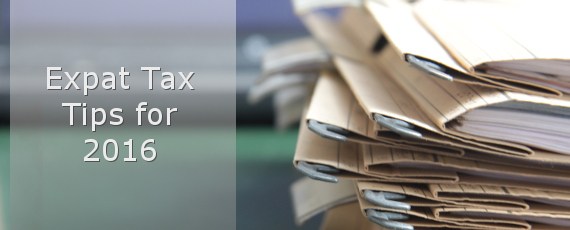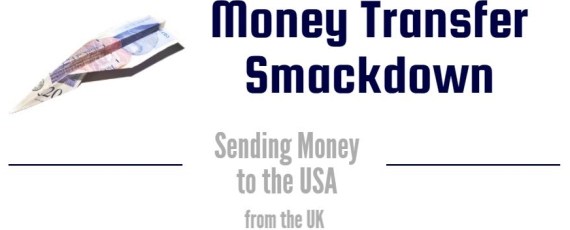
When it comes to US expat taxes, there may be a lot you don’t know! In addition to the confusing laws, deductions, credits and qualifying factors, things change from year to year. So let’s take a look at 5 things you may not know about filing US taxes- but should.
-
Deadlines for 2015 tax returns
In addition to the possible filing deadlines you have for the country in which you live, there are also a handful of dates for US tax filing you need to know:-
April 18th – US tax deadline – Normally the deadline to file your taxes is April 15th, but due to the “Emancipation Day” holiday the tax deadline is extended. US expats receive an automatic 2-month extension, but if you owe taxes to the US, you must pay by this date to avoid penalties and/or interest. If you are living stateside on this date, you will need to file your federal and state tax extension on this date as well.
-
June 15th – US expat tax deadline –- This is also the deadline to file an additional extension.
-
June 30th – FBAR must be filed electronically via FinCEN Form 114 and there are no extensions.
-
October 15th – Final deadline for US expat tax returns that were extended by June 15th.
-
-
FBAR filing is a requirement for most expats.
You have probably heard about FBAR (Foreign Bank Account Report) but now it’s time to get into the nitty-gritty detail of who needs to file because failure to file when required can be very costly! The IRS can impose steep penalties for non-compliance, so it’s important to fully understand your possible filing requirement.FBAR is part of a large US initiative to keep tax evaders from hiding money in offshore accounts. If you own accounts (or have signing authority over accounts) with balances totaling $10,000 or more at any point during the tax year, you must file FBAR. Remember that this is a collective balance: so if one account has/had $7,000 at any point and another account had $3,500, both accounts need to be reported. It doesn’t matter if the balance(s) exceeded $10,000 for only one day (or one hour!)—they will still need to be reported.
FBAR filing must be done electronically via FinCEN Form 114. Unlike your regular tax return, you file FBAR separately with the US Treasury Department and you can’t file for an extension! Penalties for failing to file FBAR can be steep—upwards of $10,000 per instance you failed to file!
-
You may need to file FATCA specific forms
FATCA, the Foreign Account Tax Compliance Act, is another important part of the US initiative to thwart sneaky tax cheats. If you have specified foreign financial assets whose total exceed certain thresholds, you will be required to file FATCA Form 8938 with your tax return. The types of assets that must be reported are:- Foreign pensions
- Foreign bank accounts
- Foreign mutual funds or stockholdings
- Foreign partnership interests
Your home is not a reportable asset on Form 8938, but note that your foreign bank accounts are.
The thresholds for filing Form 8938 vary by filing status and residency. For those living overseas, the thresholds are:
- Filing Single: Balance in these accounts was over $200,000 on the last day of the year or over $300,000 at any point during the year.
- Married Filing Jointly: Balance in these accounts was over $400,000 on the last day of the year or over $600,000 at any point during the year.
If you file for an extension on your US tax return, you automatically receive an extension on Form 8938, too. -
There are ways to lower US taxes
For most expats, the biggest question about US taxes is: Am I going to have to PAY? Thankfully, the majority of expats don’t end up paying a dime to Uncle Sam, thanks to these exclusions and credits:The Foreign Earned Income Exclusion - Qualifying expats can eliminate $100,800 of foreign income from US taxation, so it’s possible to eliminate your entire tax liability with this exclusion alone! (Note that the exclusion jumps to $101,300 in 2016, as it rises with inflation.) To be eligible to utilize the Foreign Earned Income Exclusion, you must qualify via the Physical Presence test or the Bona Fide Residence test. The Physical Presence test requires you to have foreign earned income and be physically present inside a foreign country for 330 of any 365-day period. The Bona Fide Residence test requires you to live outside the US for at least one calendar year and to have an established domicile in your country of residence. There are a few more things the IRS would consider to determine if you are a bona fide resident of your country, but in general, if you have lived overseas for a year and plan to stay there (at least with no plans to move back any time soon), you may qualify as a bona fide resident.
Foreign Housing Exclusion - If your housing expenses have risen since you moved abroad, you aren’t alone! You may be able to take advantage of the Foreign Housing Exclusion, which allows you deduct a portion of your housing expenses from US taxation. The amount you can deduct is tied to the Foreign Earned Income Exclusion and there is a ‘base amount’ that you can’t deduct (as the IRS assumes that is the amount you would pay if you were in the US). In addition, certain high-cost cities receive higher allowances so they have a greater likelihood of using this exclusion.
Foreign Tax Credit – For expats in high-tax countries or those who don’t qualify for the Foreign Earned Income Exclusion, this may be the best way to offset your US taxes. The Foreign Tax Credit is a dollar-for-dollar reduction for the taxes you pa to a foreign country. This means that if you paid $5,000 in taxes to your host country, you could deduct $5,000 from your US taxes. There are no requirements for what type of income you are paying taxes on. However, there is one caveat: You can’t use the Foreign Tax Credit on income you have already reduced by the Foreign Earned Income Exclusion—that’s double-dipping in the eyes of the IRS!
-
Obamacare may impact you
Obamacare, or the Affordable Care Act, is a new US healthcare requirement designed to ensure that every American has health insurance that meets minimum standards. And believe it or not, living overseas doesn’t automatically exempt you from the requirements! The initiative requires all Americans to hold the ‘minimum essential coverage’ or a penalty tax will be assessed. If you qualify for the Foreign Earned Income Exclusion or hold a qualifying US expatriate health plan, you are exempt from Obamacare. But if you are overseas on a short-term contract, you may not qualify for exemption and be subject to the tax (which is the greater of $95 per adult and $47.50 per child or 1% of your income for 2015). The penalties rise in 2016 but if you are still overseas then, you will like qualify for the Foreign Earned Income Exclusion and be exempt.
Filed In:
Contributor:
This post was written by David McKeegan, co-founder of Greenback Expat Tax Services. Greenback specializes in the preparation of US expat tax returns for Americans living abroad. Greenback offers straightforward pricing, a hassle-free process and CPAs and IRS Enrolled Agents who have extensive experience in the field of expat tax preparation. If you’d like Greenback to prepare your US expat tax return, simply click here to get started or visit www.greenbacktaxservices.com for more information.

